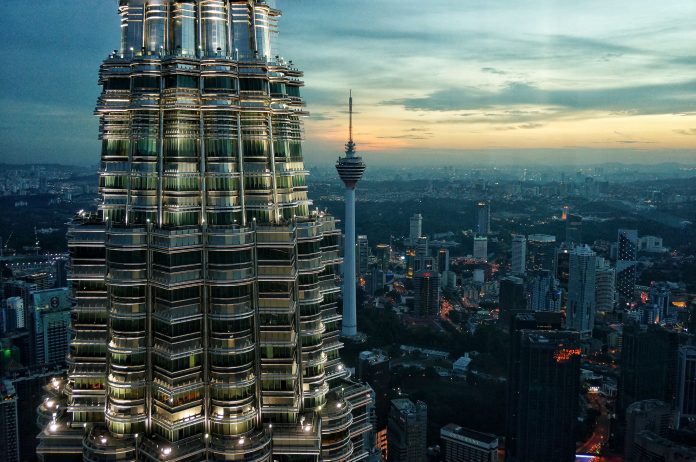
Published in Business Today & Focus Malaysia, image by Business Today.
The relaxation of lockdown measures in most Malaysian states provides the tourism sector a chance to revive from the health crisis. However, due to the continuous closure of international borders, it is wiser for the tourism industry players in Malaysia to re-strategise its marketing strategies by focusing on ecotourism development.
According to the International Ecotourism Society, ecotourism is defined as “responsible travel to natural areas that conserves the environment and improves the well-being of local people.” As Malaysia has vast biodiversity, it provides a spark of hope for the tourism sector to move forward, attracting visitors to experience natural wonders in the country.
In short, ecotourism is one of the sustainable forms of tourism that enables tourists to experience and understand the nature and rich biodiversity of the region. At the same time, it also generates socio-economic benefits for the remote and rural communities who are living close to natural surroundings.
The Covid-19 pandemic might have substantially restricted people’s movement to travel across borders freely but it has given countries some breathing space to become cleaner and greener.
This can be seen in Melaka, one of the famous tourist hotspots in Malaysia. Although the ongoing international travel ban had led to a drastic reduction in tourist boat traffic, it rejuvenates Sungai Melaka as a clean river after a two-month imposition of the Movement Control Order (MCO) in May 2020.
Therefore, the recent re-introduction of inter-district travel in most Malaysian states provides the government with the opportunity to strengthen ecotourism sites promotion and management. In turn, it would protect the economic livelihoods of the ecotourism operators while still stressing the importance of all Malaysians in observing SOPs.
For states such as Selangor, Kuala Lumpur, Penang, Johor, Kedah, Kelantan, Negeri Sembilan, Sarawak and Perak that fall under Conditional MCO (CMCO), tourism activities would be limited to 50 percent of the capacity of the premises. Among the sight-seeing activities allowed include public and tourist attractions such as zoos, farms, aquariums, edutainment centres, recreational parks, extrema and nature park outlets.
On the other hand, states such as Melaka, Pahang, Terengganu, Sabah, Putrajaya and Labuan that fall under Recovery MCO (RMCO) could operate at full capacity by ensuring the physical distancing and temperature checks of visitors at all times. The government’s emphasis on both lives and livelihoods would assist tourism industry players riding out of the economic storm besides minimising human impact on the environment.
With the government’s commitment in providing job opportunities for the local and Orang Asli communities to be tour guides at all national parks under the Budget 2021, it would empower local and Orang Asli communities to educate visitors on the importance of the conservation of biodiversity and culture. By reducing national park entry fees for nationals, the local citizens can enjoy nature, get fit, relax and release stress through jogging and hiking activities.
Among the national parks that can be explored by Malaysian citizens such as Gunung Mulu National Park in Sarawak, Taman Negara National Park in Pahang, Taman Negara Gunung Kinabalu in Sabah and Endau Rompin National Park in Johor.
In addition, the government has to develop a network of tourism corridors (i.e., major overland roads, waterways, sea or air routes) that traverse the urban and rural areas of Malaysia. Improving travel accessibility would provide convenience for travellers to visit all ecotourism sites, experiencing the essence of Malaysia’s ecotourism products and services.
According to the recent study done by World Wildlife Fund-Malaysia, there is an average of 65 fish bombing cases in Semporna, Sabah in 2018.
Fish bombing is an illegal, unreported and unregulated (IUU) fishing where people catch fish using homemade explosives made from fertilisers mixed with kerosene and ignited with a detonator and fuse. Not only it destroys fish habitats and provides danger implications to visitors, but it also costs lives – three divers were killed while diving near Pulau Kulapuan, Semporna in July 2019.
To deal with the increasing number of fish bombing cases, the government needs to apply stricter monitoring and enforcement mechanisms in the surrounding islands. It will enhance safety measures among the visitors while protecting the ocean habitat.
Hence, for Malaysia to recover its tourism sector from the fallout brought about by the pandemic, the National Ecotourism Plan 2016-2025, have suggested the following proposals for the Ministry of Tourism, Arts and Culture Malaysia (MoTAC) to put them into action:
- Attracting ecotourism investors by promoting and emphasising the uniqueness, strengths and development opportunities of Malaysia’s ecotourism sites.
- Introducing a protocol for ecotourism concessions that enhances the quality of the tourist experience in national parks besides ensuring sustainable financing.
- Consolidating research through the re-establishment of educational research centres in selected national parks and urban ecotourism sites through partnerships with local universities and NGOs.
- Repositioning marine protected areas in Malaysia as ecotourism destinations that champion the conservation and management of marine and terrestrial resources for the enjoyment of tourists responsibly while enhancing the well-being of the local community;
- Encouraging variants of the homestay concept by guiding providers to offer a mix of ‘live in’ homestays, annex type homestay, kampungstay, farmstay etc. according to the needs of specific market segments.
- Marketing and promoting activity driven, eco-adventure activities to the gen Y, youth associations, school and university groups and urban families.
- Identifying measures of ecotourism activity including data on visitors and visitor management issues in protected areas.
To build greater environmental and cultural awareness among the visitors, the government also has to develop comprehensive insights on Malaysia ecotourism under the existing Malaysia Tourism website while establishing a national inventory of ecotourism sites within Malaysia.
By leveraging Malaysia’s vast rainforest and mangrove reserve, The National Tourism Policy 2020-2030 that was launched at the end of Dec 2020, could be the base to make Malaysia the Top of Mind Ecotourism Destination of the World.
Amanda Yeo is Research Analyst at EMIR Research, an independent think tank focused on strategic policy recommendations based on rigorous research.
Diterbitkan di Utusan Malaysia.
KELONGGARAN pergerakan pelancong di dalam negara baru-baru ini telah memberi peluang kepada industri pelancongan untuk pulih. Antara yang boleh ditumpukan adalah bidang ekopelancongan.
Ringkasnya, ekopelancongan adalah salah satu bentuk pelancongan lestari yang membolehkan pelancong menghayati alam semula jadi.
Ekopelancongan semakin menjadi tumpuan kerana pandemik Covid-19 telah memberikan kesan positif apabila mewujudkan persekitaran semula jadi yang lebih bersih dan hijau ekoran pergerakan terhad orang ramai untuk merentasi sempadan.
Misalnya, Sungai Melaka telah menjadi semakin bersih dan jernih setelah dua bulan Perintah Kawalan Pergerakan (PKP) berjalan bermula Mei 2020.
Dalam usaha menggalakkan ekopelancongan, adalah penting semua rakyat Malaysia mematuhi prosedur operasi standard (SOP) bagi membasmi pandemik Covid-19.
Bagi negeri yang berada di bawah Perintah Kawalan Pergerakan Bersyarat (PKPB), aktiviti pelancongan terhad kepada 50 peratus kapasiti premis tersebut. Antara aktiviti yang dibenarkan ialah zoo, kebun, akuarium, taman rekreasi dan taman warisan semula jadi.
Sebaliknya, negeri yang berada di bawah Perintah Kawalan Pergerakan Pemulihan (PKPP) dapat beroperasi dengan kapasiti penuh dengan memastikan jarak fizikal dan pemeriksaan suhu pelawat pada setiap masa.
Penekanan kerajaan terhadap ekopelancongan akan membantu pemain industri itu mengatasi kegawatan ekonomi.
Turut disokong, komitmen kerajaan dalam menyediakan peluang pekerjaan bagi komuniti setempat dan Orang Asli sebagai jurupandu pelancong di semua taman negara di bawah Belanjawan 2021.
Ini akan memberi peluang kepada mereka untuk mendidik para pengunjung mengenai betapa pentingnya memelihara alam sekitar. Dengan mengurangkan yuran masuk ke taman-taman negara, rakyat lebih mudah menikmati alam semula jadi, melakukan senaman, berehat dan melepaskan tekanan melalui aktiviti berjoging dan mendaki.
Amanda Yeo merupakan Penganalisis Penyelidik di EMIR Research, sebuah organisasi pemikir bebas yang berfokuskan kepada pencernaan saranan-saranan dasar strategik berteraskan penyelidikan yang terperinci, konsisten dan menyeluruh.

